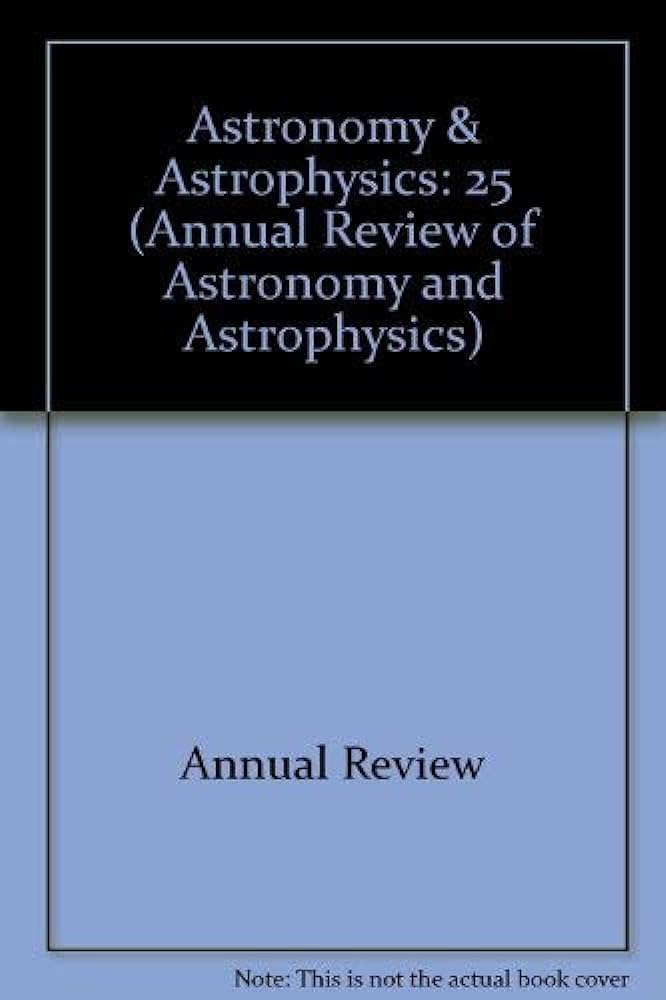南希·格蕾丝·罗曼和太空天文学的黎明
IF 32.5
1区 物理与天体物理
Q1 ASTRONOMY & ASTROPHYSICS
Annual Review of Astronomy and Astrophysics
Pub Date : 2019-08-18
DOI:10.1146/annurev-astro-091918-104446
引用次数: 0
摘要
亲爱的读者:我们很遗憾地报告,Nancy Grace Roman在提交了这一序言章节的手稿草稿后不久,于2018年12月25日去世。她的回忆录的最后一个版本经过了轻微的编辑,但仍然非常忠于原著。但是,缺少一个摘要。我们没有试图综合南希·格蕾丝无与伦比的的风格,而是借此机会简要评论她的生活及其意义。Nancy Grace Roman出生于1925年,在20世纪40年代和50年代在美国科学地成长。这两本回忆录加上维拉·鲁宾(Vera Rubin)同样引人入胜的序言(ARAA,第49卷),我们也向您推荐,让我们深入了解了那些年来女性天文学家试图在这一领域崛起所面临的障碍。罗曼的回忆录非常坦率,讲述了老师们的多次冷落、令人反感的微薄薪水,以及她的论文顾问试图同时利用她的科学发现并扼杀她在其中的作用。从事前沿研究的每一次挫折都驱使罗曼进入政府服务,在那里她找到了一个利基市场,并成长为美国民用航天计划富有远见的创始人之一。我们不知道罗曼作为一名能够使用世界上最大望远镜的研究人员可能会产生什么影响,但我们知道她作为其他人科学的推动者的影响力是巨大的。她的绰号“哈勃之母”,由崇拜者埃德·威勒授予,是当之无愧的。Nancy Grace于2018年8月4日,也就是她去世前几个月,接受了Joss Bland Hawthorn的音频采访。它比纸上的文字更生动地捕捉到了她的个性,我们建议您在https://www.annualreviews.org/r/nancy-grace-roman-interview。本文章由计算机程序翻译,如有差异,请以英文原文为准。
Nancy Grace Roman and the Dawn of Space Astronomy
Dear readers: We are sad to report that, soon after submitting her draft manuscript for this prefatory chapter, Nancy Grace Roman passed away on December 25, 2018. This final version of her memoir has been lightly edited but remains very true to the original. However, an Abstract was missing. Rather than trying to synthesize one in Nancy Grace's inimitable style, we take this opportunity to comment briefly on her life and its significance. Nancy Grace Roman was born in 1925 and came of age scientifically in the United States during the 1940s and 1950s. Together with the equally fascinating prefatory by Vera Rubin ( ARAA, Vol. 49), which we also recommend to you, these two memoirs give us intimate insight into the obstacles faced by women astronomers trying to rise in the field during those years. Roman's memoir is bitingly candid, recounting numerous snubs by teachers, insultingly small salaries, and attempts by her thesis advisor to simultaneously exploit her scientific findings and smother her role in them. Discouragement at every turn from doing forefront research is what drove Roman into government service, where she found a niche and blossomed as one of the visionary founders of the US civilian space program. We do not know what impact Roman might have had as a researcher with access to the world's largest telescopes, but we do know that her influence as an enabler of other people's science was vast. Her sobriquet as the “Mother of Hubble,” bestowed by admirer Ed Weiler, is well deserved. Nancy Grace granted an audio interview to Joss Bland-Hawthorn on August 4, 2018, just a few months before her passing. It captures her persona more vividly than mere words on paper, and we recommend the online recording to you at https://www.annualreviews.org/r/nancy-grace-roman-interview .
求助全文
通过发布文献求助,成功后即可免费获取论文全文。
去求助
来源期刊

Annual Review of Astronomy and Astrophysics
地学天文-天文与天体物理
CiteScore
54.80
自引率
0.60%
发文量
14
期刊介绍:
The Annual Review of Astronomy and Astrophysics is covers significant developments in the field of astronomy and astrophysics including:The Sun,Solar system and extrasolar planets,Stars,Interstellar medium,Galaxy and galaxies,Active galactic nuclei,Cosmology,Instrumentation and techniques,
History of the development of new areas of research.
 求助内容:
求助内容: 应助结果提醒方式:
应助结果提醒方式:


